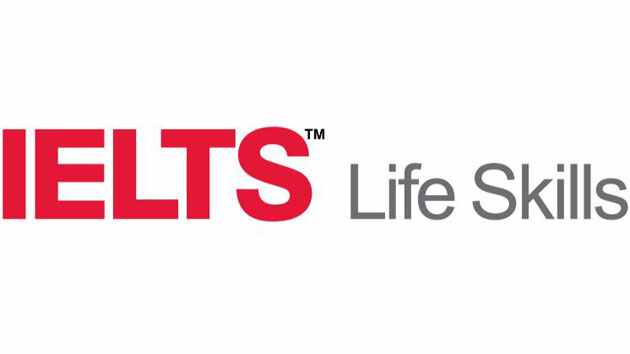In the bustling world of healthcare, nurses often find themselves at the crossroads of career advancement and ongoing education. The pursuit of further education, particularly a Bachelor of Science in Nursing (BSN), poses a significant challenge when juggling with the demanding schedules typical in nursing. Recognizing the need for flexible educational paths, many institutions now offer online programs tailored specifically for working professionals. These programs are designed to provide nurses with the ability to pursue higher education without sacrificing their current job responsibilities, making an advanced degree more accessible and feasible than ever before.
Time Management Essentials
Effective time management is crucial for nurses balancing work and studies. Mastering this skill ensures that neither professional obligations nor academic pursuits are neglected. One of the first strategies is to establish clear priorities. Nurses must assess their daily routines to identify periods that can be dedicated to uninterrupted study. This might involve rearranging shifts or negotiating with supervisors for a schedule that accommodates crucial study sessions.
Another key aspect of time management is setting realistic goals. Nurse students need to break down their coursework into manageable tasks. This approach makes it easier to complete assignments piece by piece rather than becoming overwhelmed by the volume of work. Utilizing digital tools such as calendar apps to schedule and track these tasks can significantly enhance one’s ability to stay on top of both work and study commitments.
Enrolling in one of the fast track BSN programs online can be a strategic move for those looking to advance their nursing careers efficiently. These programs are designed to be completed in a shorter timeframe, making them ideal for nurses eager to accelerate their education while managing work responsibilities. The fast-track nature of these programs exemplifies how effectively managing time can lead to substantial professional advancements in less time.
Creating a Supportive Environment
Having a robust support system is indispensable. At home, clear communication with family and friends about one's academic commitments is essential. By sharing their schedules and upcoming deadlines, nurses can help their loved ones understand the need for quiet study times or the necessity to skip certain family events.
At work, creating a supportive environment involves open dialogue with colleagues and supervisors. Many employers value the pursuit of further education and may offer flexible scheduling or reduced hours during critical study periods. Some healthcare institutions also provide resources such as study groups or access to professional development advisors who can offer guidance and support throughout the educational journey.
Maximizing Learning While Working
The true value of a BSN program lies not only in the credentials nurses gain but also in how they apply this advanced knowledge to improve patient care and operational efficiency on the job. Practical application of classroom theory to the bedside can be one of the most rewarding aspects of nurse education. To make this integration seamless, nurses should constantly look for ways to relate new concepts from their BSN coursework to their clinical practices.
One effective strategy is to maintain a reflective journal. After each module or class, take the time to write down key learnings and think about specific situations at work where these new ideas could be applied. This could involve updated patient assessment techniques, enhanced communication skills, or newer evidence-based practices for patient care. The act of writing reinforces learning and fosters a deeper understanding, which ensures better recall and application during busy shifts.
Moreover, engaging with peers and mentors about coursework can enrich a nurse’s practical skills. Many nurses find that discussing complex cases or new medical procedures with colleagues helps cement their academic learning in real-world contexts. This peer interaction not only aids in knowledge retention but also promotes a culture of continuous learning and improvement among staff.
Financial Planning for Continuing Education
A significant hurdle for many nurses pursuing a degree is managing the financial investment required. Understanding and planning for the financial aspect of further education is crucial to avoid undue stress and ensure that financial barriers do not impede academic and professional progress.
Firstly, exploring financial aid options available specifically for nursing students can greatly reduce the burden. Many institutions offer scholarships, grants, and loan forgiveness programs targeting professionals in the healthcare sector. Some hospitals and healthcare providers also offer tuition reimbursement programs as part of their benefits package, recognizing the value of advanced education in enhancing the quality of care provided.
Budgeting is another vital skill that helps nurses manage the costs associated with their education while maintaining their livelihood. Creating a detailed budget that includes tuition fees, books, and any potential loss of income due to reduced working hours is essential. This should also consider everyday living expenses and include a contingency for unexpected costs. Financial planning tools or consulting with a financial advisor who has experience with educational financing can provide valuable guidance.
Committing to Your Growth as a Nurse
Balancing the demanding roles of a working nurse and a student is no small feat. It requires diligent planning, robust support systems, and the strategic application of learned skills in the workplace. However, the benefits of pursuing such advanced education are immense. Not only does it prepare nurses for a broader range of opportunities in healthcare, but it also equips them with the knowledge to provide a higher quality of care to their patients.
Embracing the journey of education as a lifelong nurse entails viewing each challenge as an opportunity for personal and professional development. Nurses who commit to expanding their expertise through a BSN program not only enhance their careers but also contribute to the overall improvement of the healthcare system. As nurses continue to balance their educational pursuits with their critical roles in patient care, they pave the way for a more informed, efficient, and compassionate healthcare environment.

.jpg)




